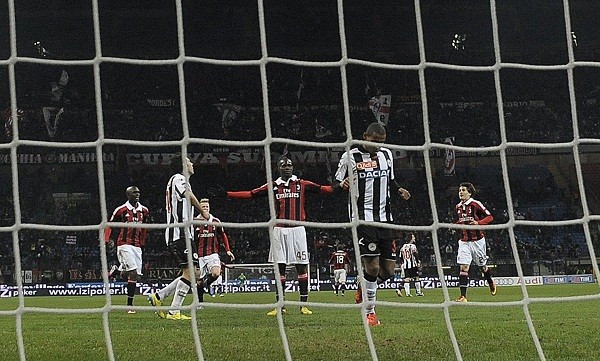Match-fixing has been a problem for the international soccer community for many years and a recent report might be the worst the sport has ever seen.
According to the New York Times, global law enforcement officials said on Monday that criminal organizations have been able to infiltrate the highest levels of both European and international soccer and have been threatening the integrity of the sport due to match fixing and related issues.
The report says that over 400 people from 15 different countries, including club and match officials, and current and former players, are suspected of conspiring to fix over 600 matches around the world. The Times says that the fixing was made to benefit mostly Asian criminal syndicates, who were able to make millions of dollars in betting due to the results.
According to the New York Times, some of the biggest matches in the world were involved, including qualifying games for the World Cup and for the European Cup, and two Champions League matches, including one in England.
"This is a sad day for European football, and more evidence of the corrupting influence of organized crime," said Rob Wainwright, the director of Europol, which helped coordinate the investigation among European Union member states, Interpol and non-European nations.
In all, 680 matches have been identified as suspect, officials said, including 300 outside Europe, primarily in Asia, Africa and Latin America. According to ESPN.com, the European Union's police agency said an 18-month review found 380 suspicious matches in Europe and another 300 questionable games outside the continent, mainly in Africa, Asia and South and Central America. It also found evidence that a Singapore-based crime syndicate was involved in some of the match-fixing.
The Europol director said that the scandal must be dealt with and solved in a speedy manner, considering how quickly the world of cycling was rocked and dismissed by the general public after the doping scandals came out, including recently with Lance Armstrong.
No teams or individuals were made public yet, but officials said that could come later after all the proper police and investigational procedures are taken. The report said that the fixing dates back to games as far as 2008 and includes a mix of players, officials and criminals.
Ralf Mutschke, director of security at FIFA, the world soccer body, said that the soccer organizations around the world need to come together to help fight the issues.
"The support of law enforcement bodies, legal investigations, and ultimately tougher sanctions are required, as currently there is low risk and high gain potential for the fixers," he said.
FIFA is allowed to ban players, referees and club officials, but it has no power to punish anyone outside the sport, making it difficult to fix the issues going on.
"For people outside of football, currently the custodial sentences imposed are too weak and offer little to deter someone from getting involved in match-fixing," he said.
According to ESPN, Europol is not a police force but provides expertise and helps coordinate national police across the 27-nation European Union. The report says that there are at least 13,000 emails, paper trails, phone records and computer records that were looked at and that the probe uncovered (euro) 8 million ($10.9 million) in betting profits and (euro) 2 million ($2.7 million) in bribes to players and officials and has already led to several prosecutions.
"This is the tip of the iceberg," said German investigator Friedhelm Althans, who also said two World Cup qualification matches in Africa and one in Central America were among those under suspicion.
This would not be the first time world soccer has been embroiled in a scandal like this, as investigations found a World Cup qualifier between Liechtenstein and Finland in September 2009 was fixed by a referee, while UEFA expelled a Malta player last year for fixing a European Championship qualifier between Norway and Malta in June 2007.




